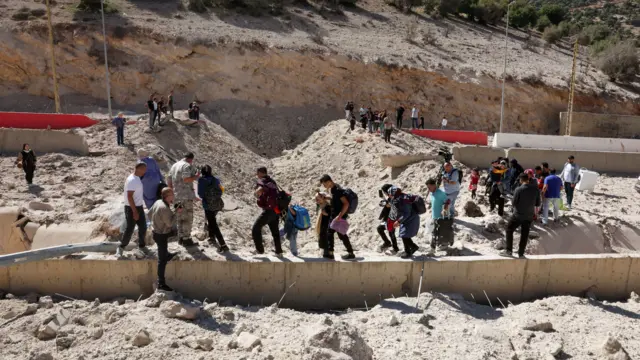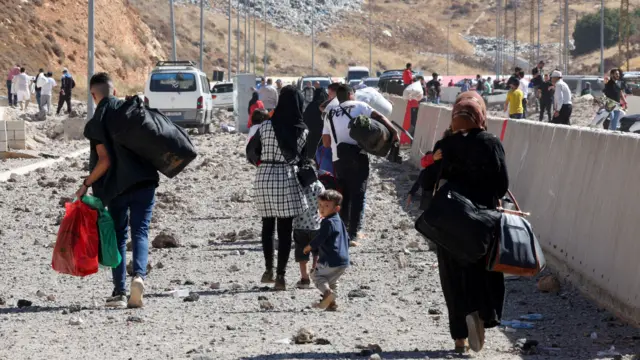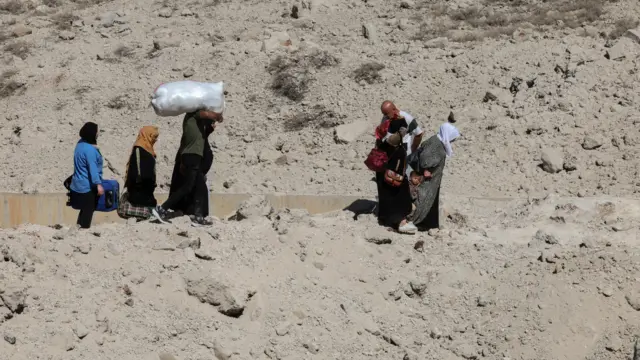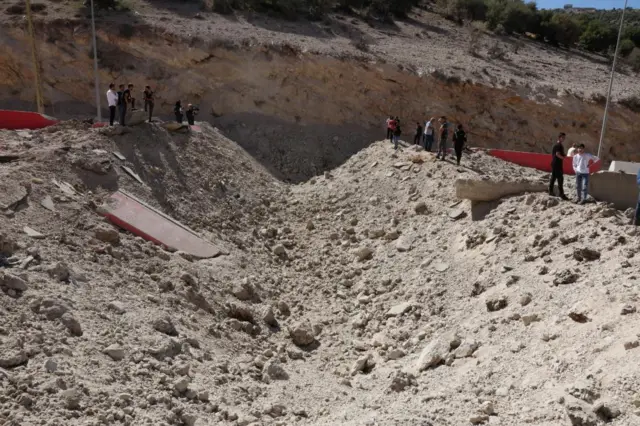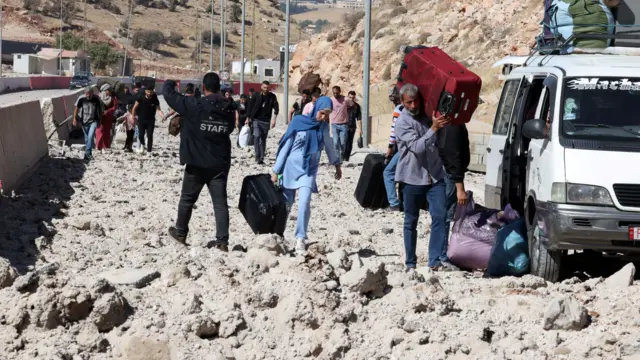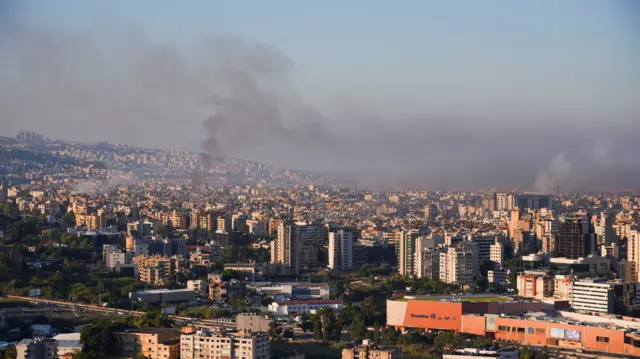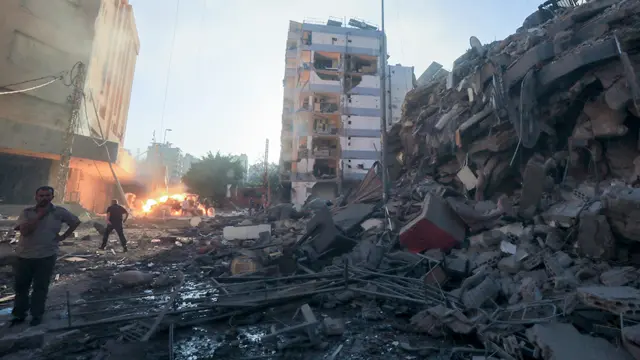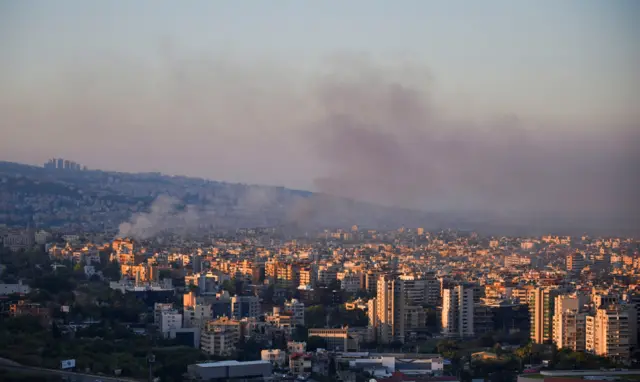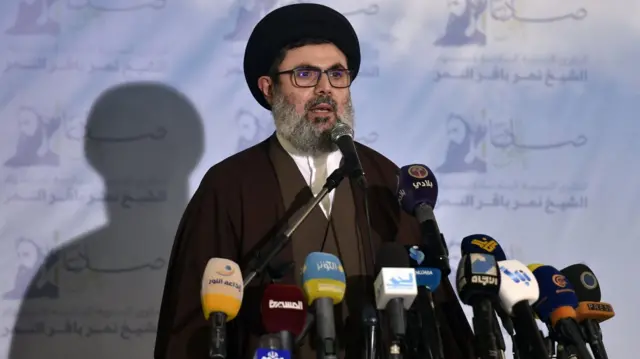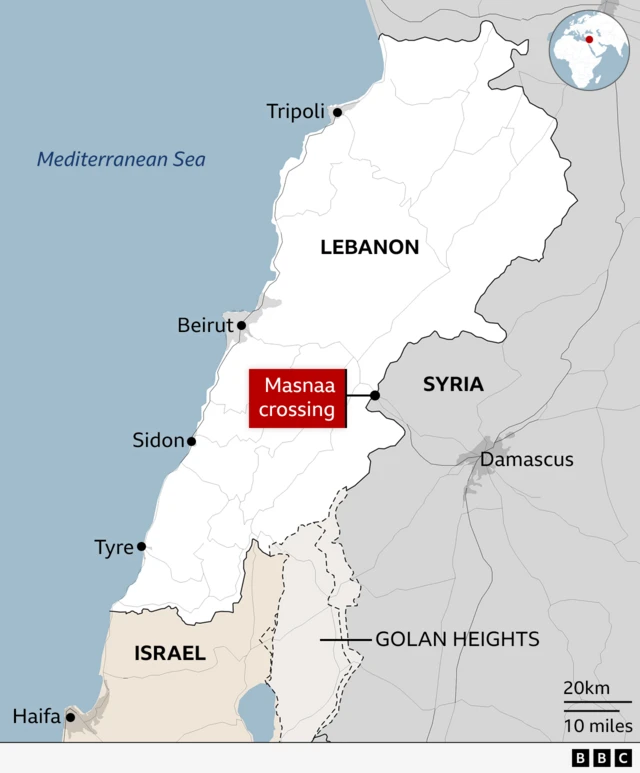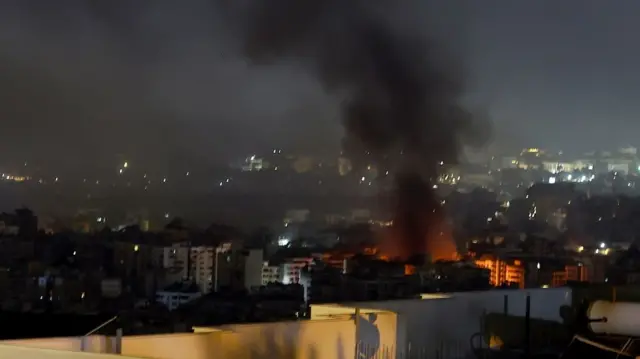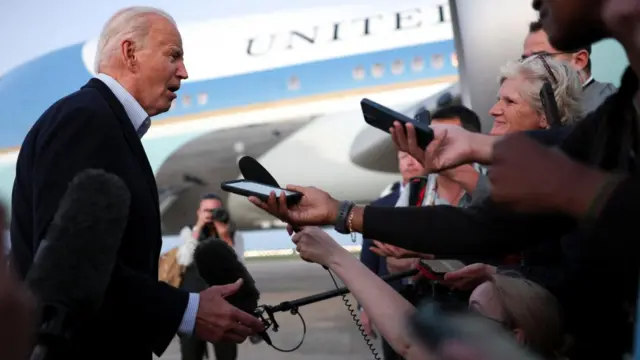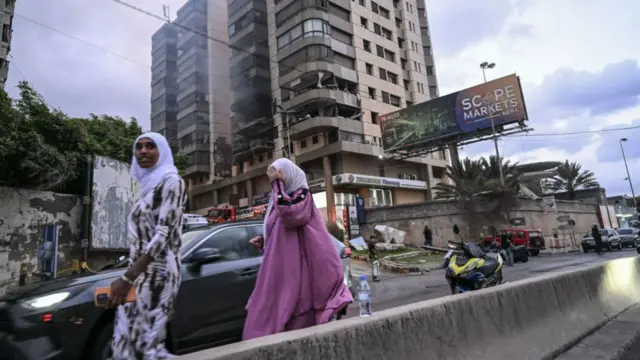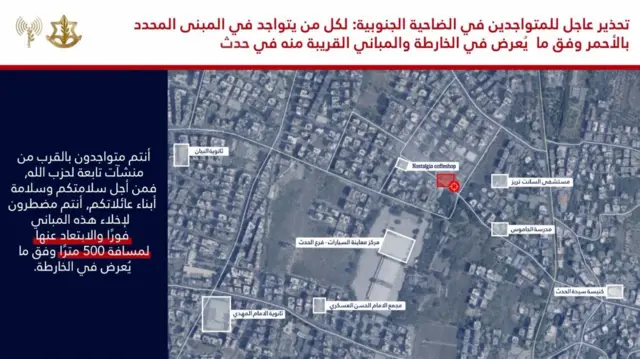Iran's Khamenei delivers rare sermon in Tehranpublished at 09:48 BST 4 October 2024
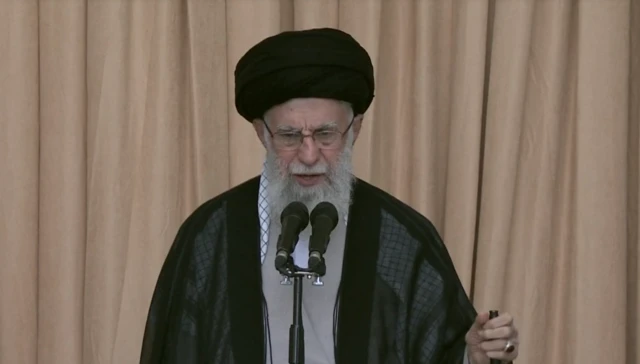 Image source, Reuters
Image source, ReutersIran's Supreme Leader Ayatollah Ali Khamenei has begun delivering Friday prayers in Tehran's 's Grand Mosalla Mosque - the first time he has done so in nearly five years.
The last time Khamenei delivered Friday prayers was after the US assassinated the Revolutionary Guard general, Qassem Soleimani, in 2020.
We will bring you the key lines here - and you can follow an English translation by clicking watch live above.
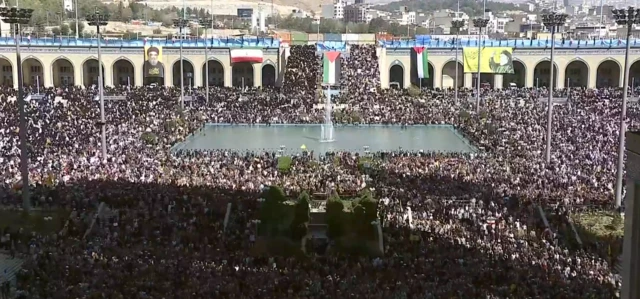 Image source, Reuters
Image source, Reuters